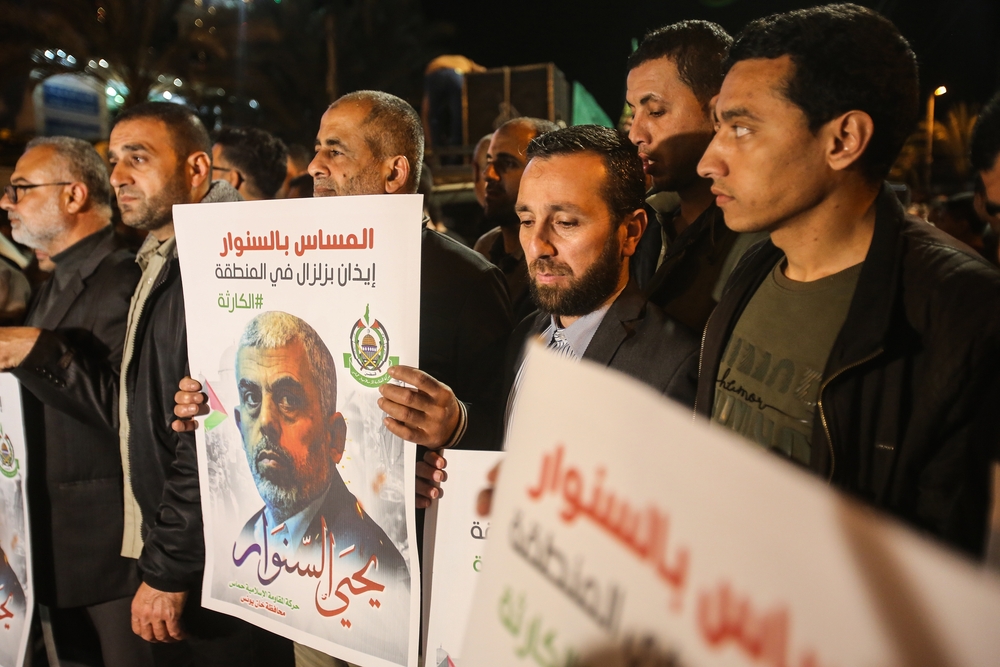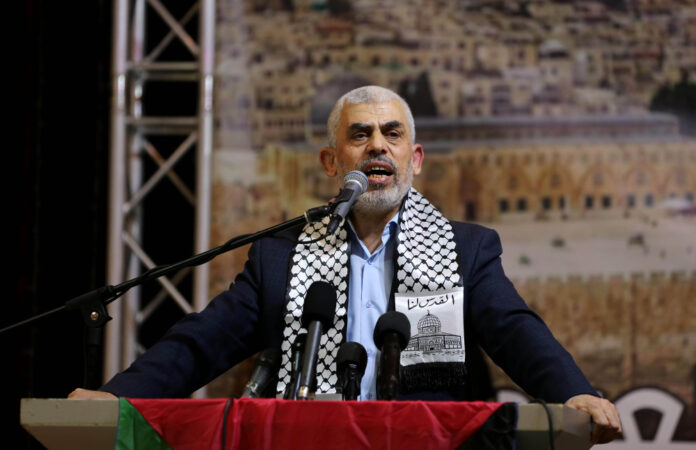Israel announced earlier today that it killed Hamas leader Yahya Sinwar in the Gaza Strip.
In an official statement on X, the IDF account tweeted “Eliminated: Yahya Sinwar.” Israeli Foreign Minister Israel Katz also confirmed the killing.
The military admitted that there were no signs of the presence of hostages in the area where Sinwar was killed.
In a brief statement, Israeli Prime Minister Benjamin Netanyahu said Israel has “settled its account” with Sinwar but “the war is not yet ended.”
So far there has been no comment from Hamas.
Who was Yahya Sinwar?
Yahya Sinwar, the leader of Hamas, was born in 1962. He was arrested multiple times by Israel and sentenced to four life terms before being released in a 2011 prisoner exchange.
Subscribe to our newsletter and stay updated on the latest news and updates from around the Muslim world!
After his release, he resumed leadership of Hamas’ military wing, the Izz ad-Din al-Qassam Brigades.
He became head of Hamas in Gaza in 2017 and was re-elected in 2021.
In 2024, following the assassination of his predecessor, Ismail Haniyeh, by Israel, Sinwar was elected head of Hamas’ political bureau.
Israel considers Sinwar the architect of Operation Flood of Al-Aqsa on October 9, 2023, which caused significant losses and embarrassed Israel’s security services. In retaliation, Israel launched Operation Iron Swords, aiming to eliminate Sinwar.
Sinwar was born in the Khan Yunis refugee camp in Gaza in 1962 to a family displaced during the 1948 Nakba.

He attended the Islamic University of Gaza, where he was an active student leader with the Islamic Bloc, a branch of the Muslim Brotherhood.
This role helped him build the leadership experience that led him to founding a Hamas security unit, “Majd,” responsible for tracking Israeli collaborators and intelligence officers.
Sinwar was first arrested in 1982, later receiving multiple prison sentences for involvement in the killing of Israeli soldiers and suspected Palestinian collaborators.
During his time in prison, he held significant leadership roles and endured harsh conditions, including solitary confinement and health problems.
He also dedicated himself to writing and translating works that explored Israeli security and political systems.
After his release in 2011, Sinwar became a key figure in the movement’s political and military strategies.
He strengthened relations with Egypt, oversaw military operations, and was central to negotiations regarding Israeli prisoners.
Despite multiple attempts by Israel to target him in airstrikes, he remains a highly influential figure in Hamas, particularly after being elected to lead the group in 2024 following Haniyeh’s assassination.
7 October attack
Sinwar was believed to be the architect behind the October 7 attack on Israel which made him Israel’s most wanted target.
Foreign Minister Israel Katz said of his nation’s most wanted man: “Mass murderer Yahya Sinwar, who was responsible for the massacre and atrocities of October 7, was killed today by [Israeli soldiers soldiers”.
The killing represents a major boost to the Israeli military and the Israeli prime minister, Benjamin Netanyahu, after a string of high-profile assassinations of prominent leaders of its enemies in recent months.
Sinwar, is thought to have engineered the attack alongside with Mohammed Deif. Deif was killed in an airstrike on Gaza in July, the same month Hamas’ political leader, Ismael Haniyeh was assassinated in a strike in Iran.
The 7 October attack killed around 1,200 Israelis, while another 251 people were taken hostage.
Israel’s retaliatory war inside Gaza from land and air has killed 42,000 Palestinians, according to health authorities in Gaza.
UK terror list proscription
Hamas and its leadership are on the UK’s terrorism list and any support for the group is considered a criminal offence in Britain.
In November 2021, the Home Secretary announced that the Government had laid an instrument to proscribe Hamas in its entirety; previously, the only the military wing of Hamas had been proscribed (since 2001).
Several other groups which are currently fighting against Israel are also designated in their entirety such as the Iran-backed Lebanese group Hezbollah.























